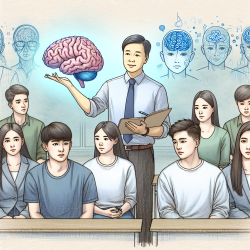Introduction
In recent years, the need for effective psychological interventions in humanitarian contexts has become increasingly evident. The pilot randomised controlled trial titled "Examining MEmory Training for Recovery-Adolescent among Afghan adolescent boys: a pilot randomised controlled trial" sheds light on the potential of MEmory Training for Recovery-Adolescent (METRA) in addressing psychological distress among Afghan adolescent boys. This blog explores how practitioners can leverage the findings of this study to enhance their therapeutic approaches and improve outcomes for adolescents in similar contexts.
Understanding METRA
METRA is a low-intensity, evidence-based training program designed to target two key memory disruptions associated with PTSD: difficulties in recalling specific autobiographical memories and overgeneral memory retrieval. These disruptions are linked to ongoing psychological difficulties, including rumination, avoidance, and impaired executive functioning. METRA comprises two modules:
- Module 1: Memory Specificity Training - This module focuses on improving memory specificity, which has been shown to alleviate PTSD symptoms.
- Module 2: Writing for Recovery - This module involves written exposure therapy, where adolescents write about their traumatic experiences to process and reduce distress.
Key Findings from the Study
The study conducted in Kabul, Afghanistan, involved 58 boys aged 14-19 years who had experienced a terrorist attack. Participants were randomly assigned to either the METRA group or a control group receiving study skills sessions. The results were promising:
- METRA participants showed a significant reduction in PTSD symptoms, with a 20.89-point decrease compared to a 1.42-point decrease in the control group.
- Improvements were also observed in depression, anxiety, Afghan-cultural distress symptoms, and psychiatric difficulties.
- All gains were maintained at a three-month follow-up, indicating the lasting impact of METRA.
Implications for Practitioners
The findings of this study offer valuable insights for practitioners working with adolescents in humanitarian contexts. Here are some key takeaways:
- Feasibility and Acceptability: METRA was deemed feasible and acceptable, despite challenges related to security and educational demands. Practitioners should consider these factors when implementing similar interventions.
- Gender-Specific Considerations: The study highlights the need to explore METRA's efficacy among adolescent boys, as previous research focused on girls. Gender-specific adaptations may enhance the intervention's effectiveness.
- School Context: Implementing METRA within schools can present challenges, such as interference with class time and lack of teacher support. Practitioners should engage with school staff and consider alternative settings if necessary.
Encouraging Further Research
While the study provides promising results, further research is warranted to explore METRA's applicability in diverse contexts and populations. Practitioners are encouraged to contribute to this growing body of evidence by conducting studies that assess METRA's effectiveness in different cultural and humanitarian settings.
Conclusion
METRA offers a promising approach to addressing psychological distress among adolescents in humanitarian contexts. By implementing the findings of this study, practitioners can enhance their therapeutic interventions and contribute to improved outcomes for children in need. To read the original research paper, please follow this link: Examining MEmory Training for Recovery-Adolescent among Afghan adolescent boys: a pilot randomised controlled trial.










